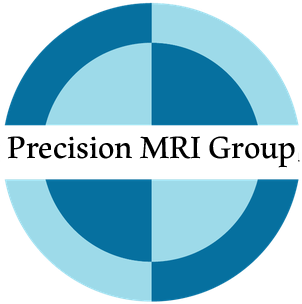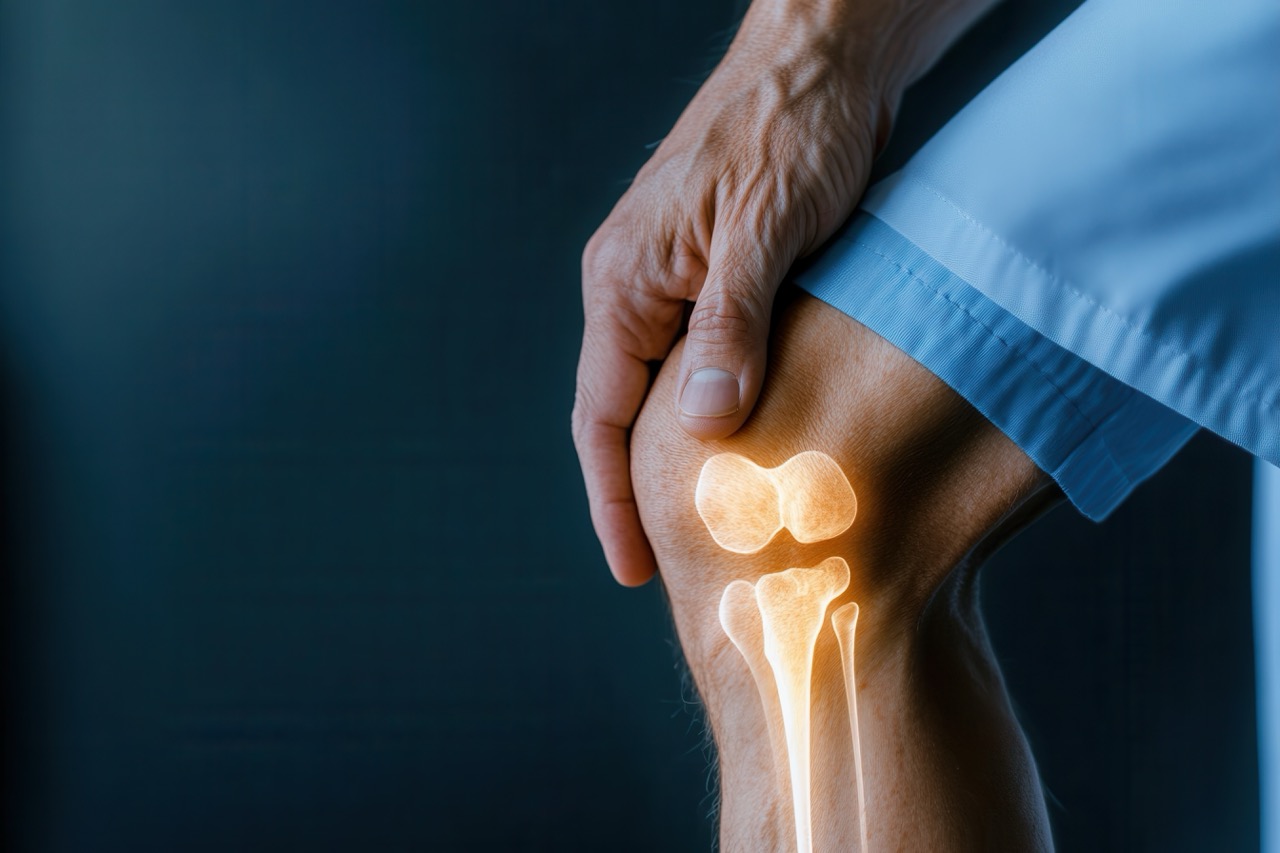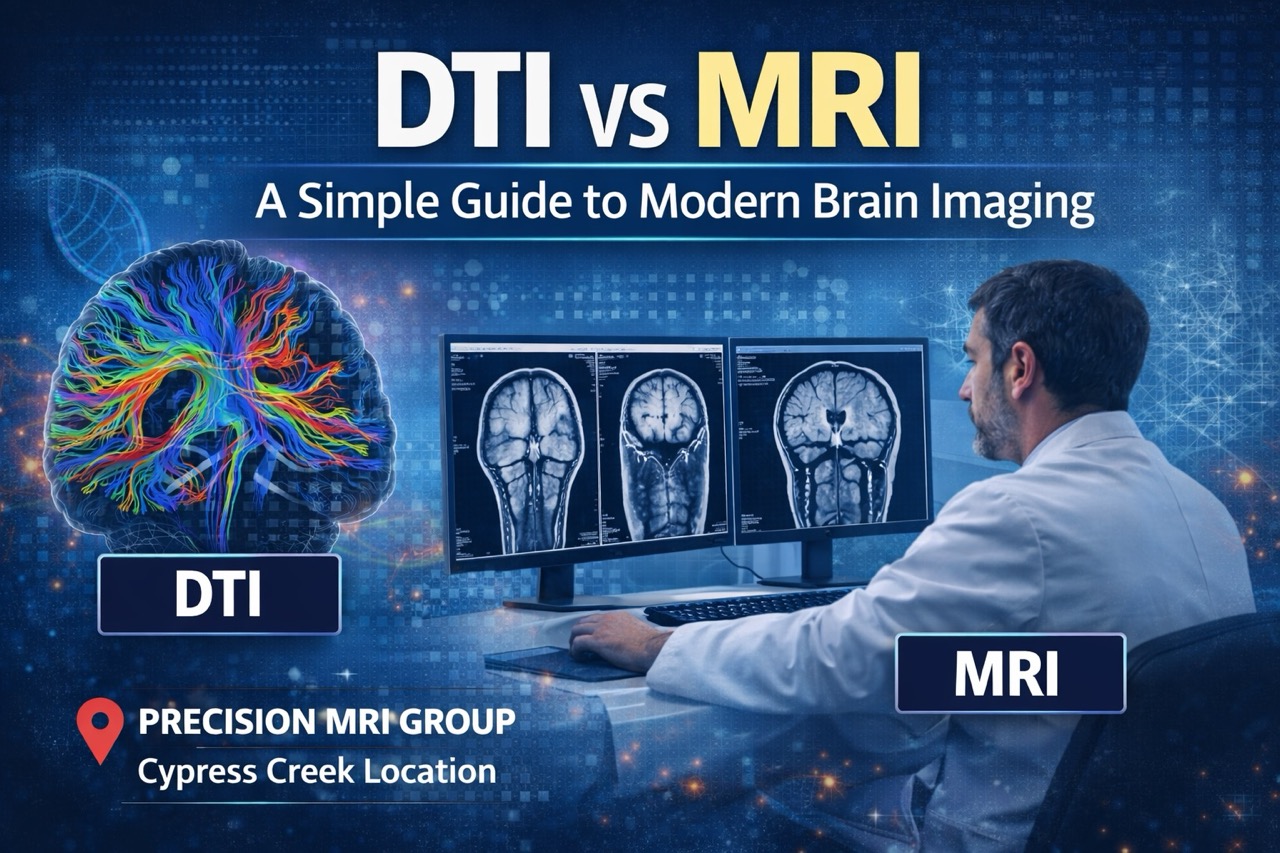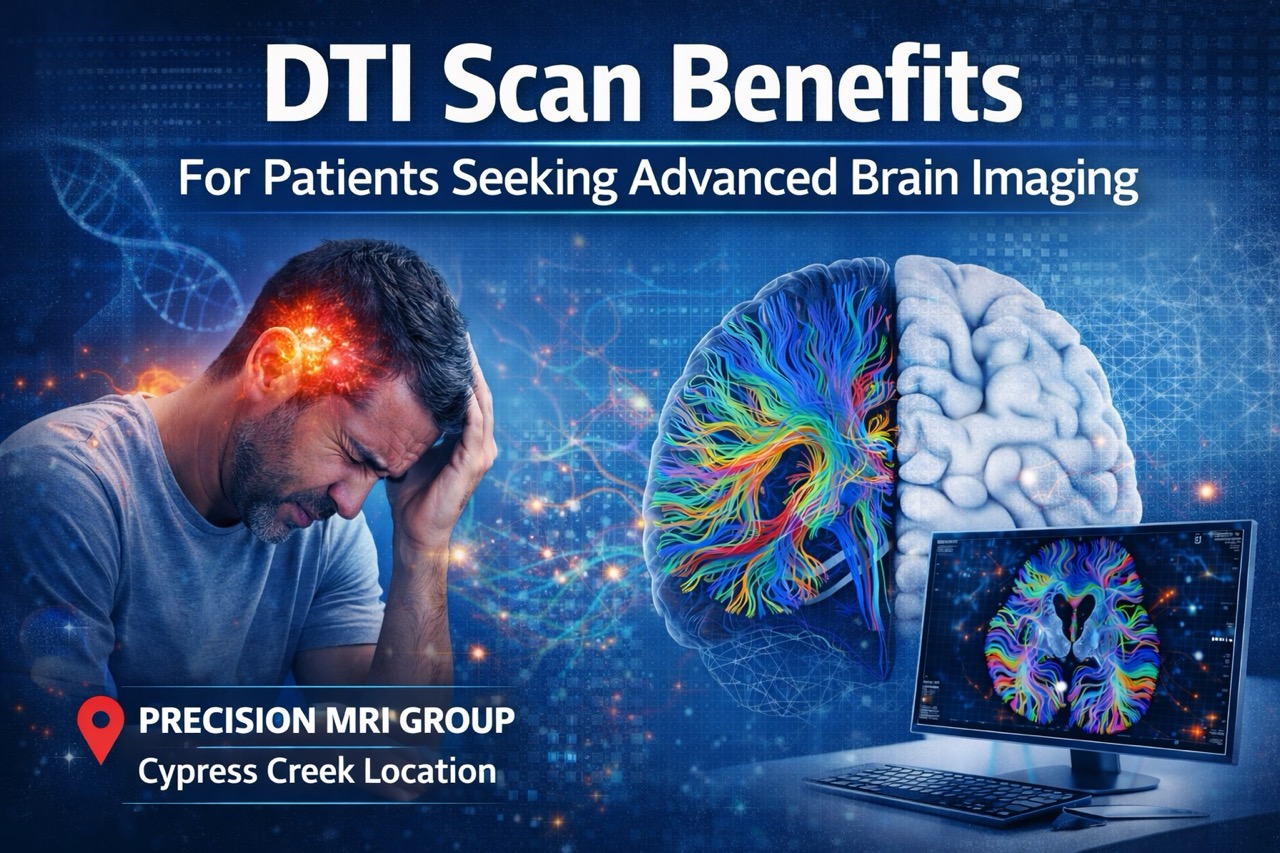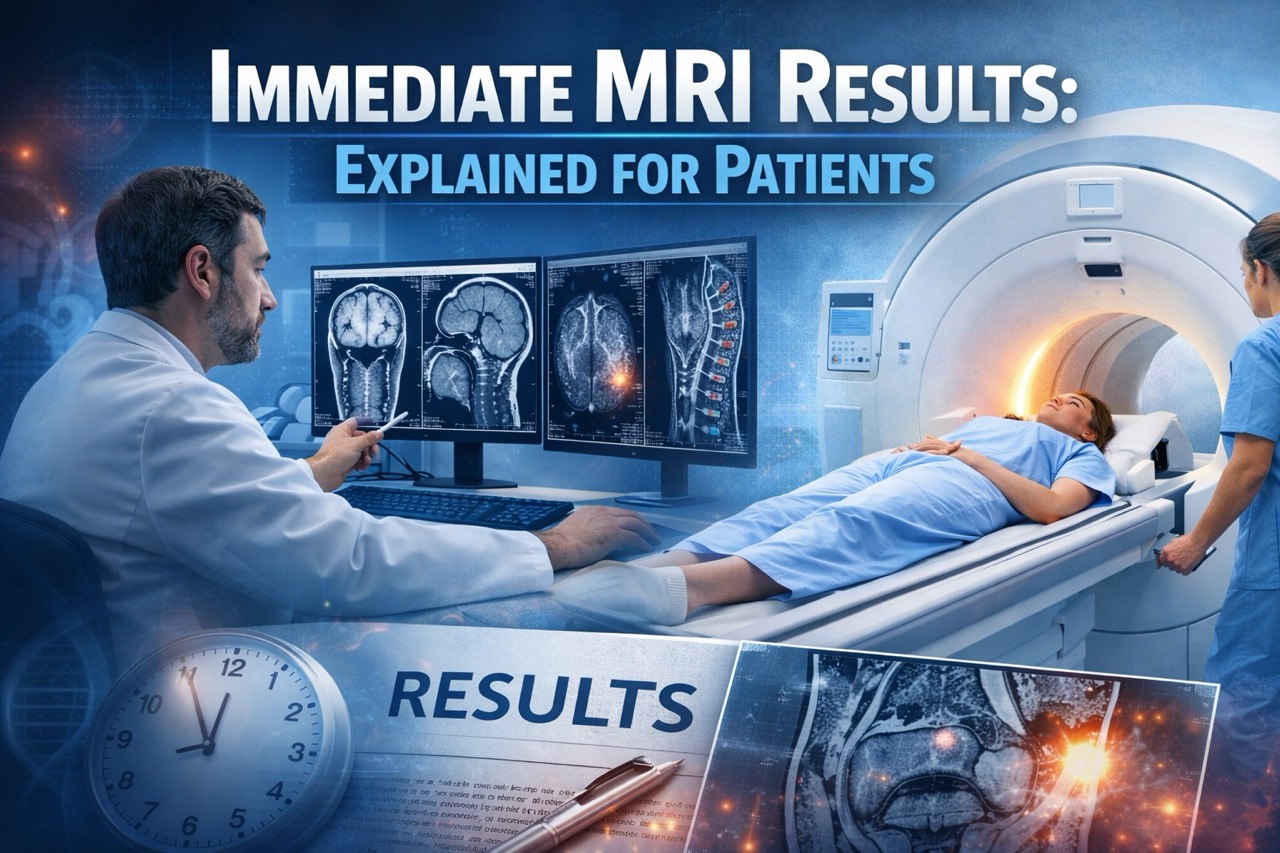Knee MRI in Lake Worth: When Pain and Swelling Mean It’s Time for a Scan
Knee pain can stop you in your tracks. One day you’re walking up stairs with ease, and the next day every step sends sharp pain through your joint. When should you consider getting a knee MRI in Lake Worth? The answer isn’t always clear, especially when pain comes and goes or feels manageable most days.
Your knee is a complex joint with bones, cartilage, ligaments, and tendons all working together. When something goes wrong, the pain can range from a dull ache to sharp, stabbing sensations. Sometimes the issue is obvious, like after a sports injury or fall. Other times, the pain develops slowly over weeks or months.
Getting the right diagnosis matters. A knee MRI can reveal what’s really happening inside your joint, helping your doctor create the best treatment plan for your specific situation.
Why a Knee MRI Can Help You Find Answers
MRI scans give doctors a detailed look inside your knee without surgery. This advanced imaging shows soft tissues like cartilage, ligaments, and tendons that don’t appear clearly on X-rays. The scan can spot problems early, before they become more serious issues.
At Precision MRI Group, we make getting your knee MRI as easy as possible. You can schedule same-day appointments when your pain flares up. Our comfortable scanning environment helps you relax during the procedure. Most patients receive their results within 24 to 48 hours, so you don’t have to wait long for answers.
We also offer late-night and weekend appointments to fit your busy schedule. If getting to our facility is difficult, we provide free transportation upon request. Our goal is removing barriers that might delay your diagnosis and treatment.
Here are the five key signs that indicate your knee pain needs an MRI scan.
Your Persistent Knee Pain and Swelling Won’t Go Away
Pain that lasts more than a few days deserves attention. If your knee hurts constantly or swells regularly, something inside the joint needs evaluation. This ongoing discomfort often signals damage to important structures that support your knee.
A knee MRI can detect meniscus tears, which are common causes of persistent pain. The meniscus acts like a shock absorber between your thighbone and shinbone. When it tears, you feel pain during movement and often experience swelling that won’t subside with rest.
Ligament sprains also show up clearly on MRI scans. These injuries can cause ongoing pain even after the initial trauma seems to heal. The scan reveals if ligaments are partially torn, stretched beyond their normal limits, or completely severed.
Early arthritis changes appear on MRI before they show up on X-rays. The scan can detect cartilage thinning, bone changes, and inflammation around the joint. Getting this information early helps you and your doctor plan treatments that can slow the progression of arthritis.
Your Knee Makes Popping Sounds or Gives Way
Strange sounds from your knee joint aren’t normal. Popping, clicking, or grinding noises often indicate structural problems that need evaluation. When your knee suddenly gives way or feels unstable, the issue usually involves major ligaments or cartilage damage.
ACL tears are serious injuries that cause knee instability. The anterior cruciate ligament prevents your shinbone from sliding forward relative to your thighbone. When this ligament tears, your knee may buckle unexpectedly, especially during sports or quick direction changes.
MCL injuries affect the medial collateral ligament on the inside of your knee. This ligament provides stability during side-to-side movements. Damage here often causes pain along the inner knee and a feeling that your leg might give out.
Kneecap problems also create unusual sounds and instability. The kneecap can slip out of its normal groove, causing painful popping sensations. MRI scans show if the kneecap is tracking properly and if the surrounding cartilage is damaged.
Cartilage fragments sometimes break loose inside the joint, creating clicking sounds and catching sensations. These pieces can interfere with normal knee movement and cause sudden episodes of instability.
Your Knee Locks or Catches During Movement
Knee locking is a frightening experience. Your knee gets stuck in one position and won’t bend or straighten normally. This mechanical problem usually means something is physically blocking normal joint movement. True locking requires immediate medical attention.
Meniscus tears commonly cause knee locking. When a piece of torn meniscus flips into the joint space, it acts like a doorstop, preventing normal movement. The knee may lock in a partially bent position, making it impossible to fully straighten your leg.
Loose cartilage fragments create similar problems. These pieces can wedge between joint surfaces, causing sudden locking episodes. The knee might unlock on its own after a few minutes, or you might need to move your leg in a specific way to free the obstruction.
Catching sensations are slightly different from true locking. Your knee might feel like it catches or sticks briefly during movement, then releases. This often indicates smaller meniscus tears or rough cartilage surfaces that interfere with smooth joint motion.
MRI scans excel at detecting these mechanical problems. The detailed images show exactly where tears are located and how large they are. This information helps your doctor decide if you need surgery or if other treatments might work.
Your Pain Persists After Injury or Surgery
Sometimes knee pain continues long after an injury should have healed. This ongoing discomfort might signal complications or new problems that developed during recovery. Previous knee surgery doesn’t guarantee that all issues are resolved permanently.
Hidden fractures sometimes don’t appear on initial X-rays but show up clearly on MRI scans. These stress fractures can develop gradually and cause persistent pain weeks or months after an injury. The detailed imaging reveals bone changes that explain your ongoing symptoms.
Scar tissue formation is common after knee surgery or significant injuries. While some scarring is normal, excessive scar tissue can limit movement and cause pain. MRI scans show if scar tissue is interfering with normal joint function or pressing on nearby nerves.
Re-tears can occur in previously repaired structures. Meniscus repairs sometimes fail, and ligament reconstructions can stretch or tear again. If your pain returns after a period of improvement, new damage might be the culprit.
Infection is a serious complication that requires immediate treatment. MRI scans can detect signs of infection in bones or soft tissues that might not be obvious from external examination. This imaging helps doctors distinguish between normal healing and dangerous complications.
Your Knee Shows Unexplained Stiffness and Grinding
Knee stiffness that develops gradually might seem like a normal part of aging, but significant limitations deserve evaluation. When your knee feels tight, makes grinding sounds, or loses range of motion, underlying problems might be progressing.
Arthritis changes often start with morning stiffness and grinding sensations. The cartilage that normally provides smooth joint surfaces begins to wear away, creating rough areas that cause friction. This process can happen at any age, not just in older adults.
Inflammation around the knee joint creates stiffness and limits movement. Conditions like bursitis or synovitis cause the tissues around your knee to swell and become painful. MRI scans can pinpoint exactly where inflammation is occurring.
Cartilage damage shows up clearly on MRI before it’s visible on X-rays. The scan reveals areas where cartilage is thinning, cracking, or completely worn away. This early detection allows for treatments that might slow further deterioration.
Bone changes associated with arthritis include spurs, cysts, and areas of increased density. These changes contribute to stiffness and grinding sensations. Understanding the extent of bone involvement helps guide treatment decisions.
Why Choose Precision MRI Group in Lake Worth for Your Knee MRI
At Precision MRI Group, we understand that knee pain affects every aspect of your daily life. Our Lake Worth facility is designed with your comfort and convenience in mind. We use advanced GE HiField 1.5 Tesla MRI technology to provide clear, detailed images that help your doctor make accurate diagnoses.
Our team works hard to make your experience as smooth as possible. Here’s what sets us apart:
- Same-day appointments available when you need answers quickly
- Late-night and weekend hours to accommodate your schedule
- Free transportation upon request if getting to our facility is challenging
- Reports delivered within 24 to 48 hours, with emergency results available immediately
- Multilingual staff speaking English, Spanish, and Creole for clear communication
- Board-certified radiologists ensuring accurate interpretation of your scans
Book Your Knee MRI in Lake Worth Today with Precision MRI Group
Don’t wait to get answers about your knee pain. At Precision MRI Group, we provide accurate imaging, comfortable scanning environments, and fast results, all close to home. Whether you’re managing a knee injury, dealing with persistent pain, or following up on a doctor’s recommendation, we are ready to help.
With our same day knee MRI service, late-night and weekend availability, and free transportation upon request, getting the right scan has never been easier.
Call today or email the location nearest you to schedule your knee MRI in Lake Worth. Take the first step toward clarity and peace of mind, book now.
Precision MRI Group Locations:
-
Pembroke Pines
9696 Pines Blvd., Pembroke Pines, FL 33024
Phone: (954) 391-7844, Contact: Amalia (amalia@pinesimagingcenter.com) -
Lake Worth
2311 10th Ave N Suite #2 and Suite #1, Lake Worth, FL 33461
Phone: (561) 623-8346, Contact: Marisol (marisol@mriprecision.com) -
Cypress Creek
2122 NW 62nd Street, Suite 107, Ft. Lauderdale, FL 33309
Phone: (954) 677-1069, Contact: Latoya Reid (latoya@cypresscreekmri.com) -
Port St Lucie
879 E Prima Vista Blvd #2, Port St. Lucie, FL 34952
Phone: (772) 344-7566, Contact: Laura Schwenzer (laura@mriprecision.com)
Your health matters, schedule your knee MRI in Lake Worth with Precision MRI Group today.
